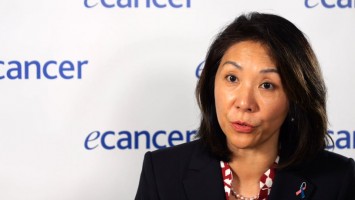In the WIN Consortium meeting we have been discussing how to incorporate precision medicine into patients. Actually from the ESMO perspective we have been promoting several activities in this field. First of all, as sustainable cancer care is one of the main motifs from our Mission 2020 strategy, we have been doing several actions in order to promote access to patients, cancer drug access to patients. In this regard, back in 2014 ESMO, the Executive Board, decided to create the Magnitude of Clinical Benefit scale that has been a very useful tool in order to prioritise and help the payers and the regulatory authorities to prioritise the drugs based on the activity that they have and also the safety and the quality of life that they induce. In a way this has been helpful to promote this kind of prioritisation and make as much as possible effective drugs accessible for patients.
This is one thing, the other thing is the decision that we also created in the Cancer Medicines Working Group, now it’s a full committee, touching on two very important problems – accessibility of essential, so-called inexpensive, but essential and very important drugs for the treatment of cancer. We know that there are several problems about that, including the shortage of drugs and we have been promoting actions in order to combat this. The second topic, of course, is innovative and more expensive drugs.
As we know, based on the surveys that ESMO has conducted, the availability of these drugs in Europe, in different countries from Europe, but even in different countries at a worldwide level, is very different. In some cases it’s very dismal. So here we have been promoting several actions to induce a dialogue and to promote tools that could help, could facilitate, that pharma companies and payers can talk in a model that we call a geographically adapted value based reimbursement model. Again, that could facilitate that more patients receive the adequate drugs on time.
On top of that ESMO has been promoting other actions at the level of policy with the European Union and the European Commission and the European Medicines Agency as well in very fundamental topics like rare cancers and how we are going to be promoting clinical trials in this specific situation. Also the potential approval of drugs based on single arm studies is also something very important for rare tumours and for precision medicine. On top of that, also in collaboration in some instances with the American Society for Clinical Oncology, we are promoting joint symposiums in our congresses, addressing specifically these kinds of things – how we can foster precision medicine and approval of drugs in this very new area of precision medicine. For example, in the ESMO Congress, to be held in Munich in October, actually we have a session specifically in this topic with clinicians from ESMO, from ASCO but also from regulators, contributing regulators, from the FDA and from the EMA.








